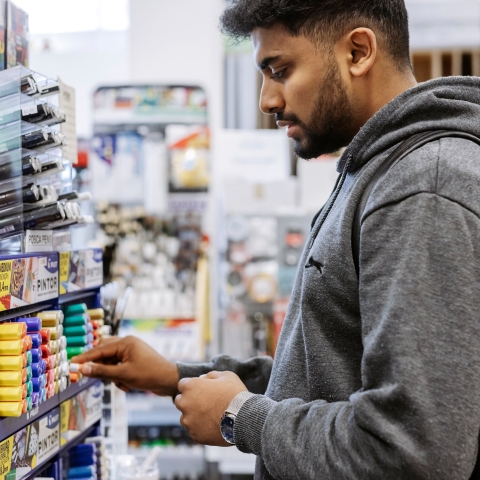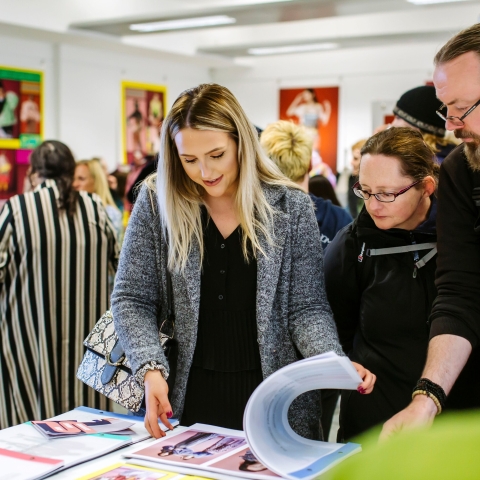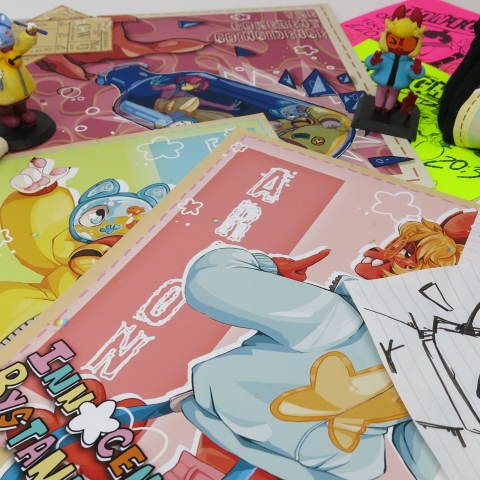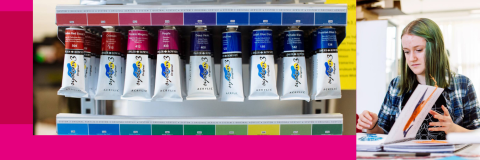
The real-world experience you gain in art and illustration helps you refine your artistic skills, develop your industry insights, and gain a competitive edge. You'll turn classroom knowledge into tangible, marketable assets, laying the groundwork for your future career.
Types of Opportunities
Below are some examples of the different types of opportunities to gain experience while you study.
Placements will give you a long-term look at an organisation, and help you to build contacts and experience.
On some degrees, work placements are part of the programme, whilst on others you can choose to complete a placement as one of your modules. To learn more about completing a placement, you can contact the Placements team in the Careers and Employability Service.
Learn more about taking a placement
Many students from the Faculty of Creative and Cultural Arts choose to take a Self-Employed Placement. This allows you to work for yourself during your placement year and receive support from the University's Student Startup Team. You will have access to funding opportunities, networking events and workshops.
It is worth considering the voluntary sector for work experience. Voluntary work with community art initiatives can be valuable. Seize any opportunity to get involved in local community projects to help you develop your work experience. Our Volunteering Bank provides local opportunities to undertake alongside your studies, advertising roles such as:
- Artist for Park History Project for Victoria Park, Portsmouth
- Graphic Design Volunteer for Southsea Cinema and Arts Centre
You can also get involved in relevant university projects through the different groups and societies via the Student Union. This is a good way of demonstrating your motivation and interest in this area of work.
Internships are usually for a fixed period and give you more hands-on experience. Many employers will treat interns in the same way as full-time employees, so when future job roles ask for 'at least one year's experience' you can include an internship in this type of experience.
You can find internships for art and illustration through:
Be proactive and try to gather inspiration and ideas from the world around you: join creative clusters and attend networking events. This is a great way to meet people working in the creative industries and will help you with your networking skills. LinkedIn is a useful platform to network with sector employers.
You can also speak to your tutors in the Faculty of Creative and Cultural Industries about potential contacts and opportunities for work experience over the vacation periods.
This is an opportunity for you to spend time with an experienced professional and learn about what they do and their role.
Whatever experience you gain will help your understanding of the skills required in the art and design field. It will also give you an idea of the challenges and triumphs of the creative process.
Where to find opportunities
The key to success is to prepare thoroughly, do your research and organise your experience in good time. Explore the various areas of your sector before you apply for work experience; knowing what you want to specialise in will help you focus your research and ensure you gain the relevant skills.
Work experience and internships section in Prospects contains links to relevant resources to help you find some work experience.
Tips for finding work experience
- Try to have something that makes you stand out in your applications: join and get involved in relevant university groups or projects. This is a good way of demonstrating your motivation and interest in this area of work.
- Tailor your project work towards themes that interest you.
- Research employers/organisations carefully.
- Keep up to date with developments in the arts and illustration field.
- Speak to your tutor or other members of Faculty staff researching in the areas that interest you, as students are sometimes recruited to work on research projects over the summer.
- Start early! Get involved, volunteer during your first and second year to help boost your employability opportunities once you graduate.
Explore the Art and Illustration Career Guide
Art and illustration career guide
Your guide to building a career in art and illustration.

Getting started in art and illustration
Take the first steps to beginning your career in art and illustration.

Finding a job in art and illustration
Explore the different ways you can find employment after you graduate from art and illustration.

Enable University alerts
Turn on notifications for critical updates like closures, safety alerts, and urgent service disruptions.






